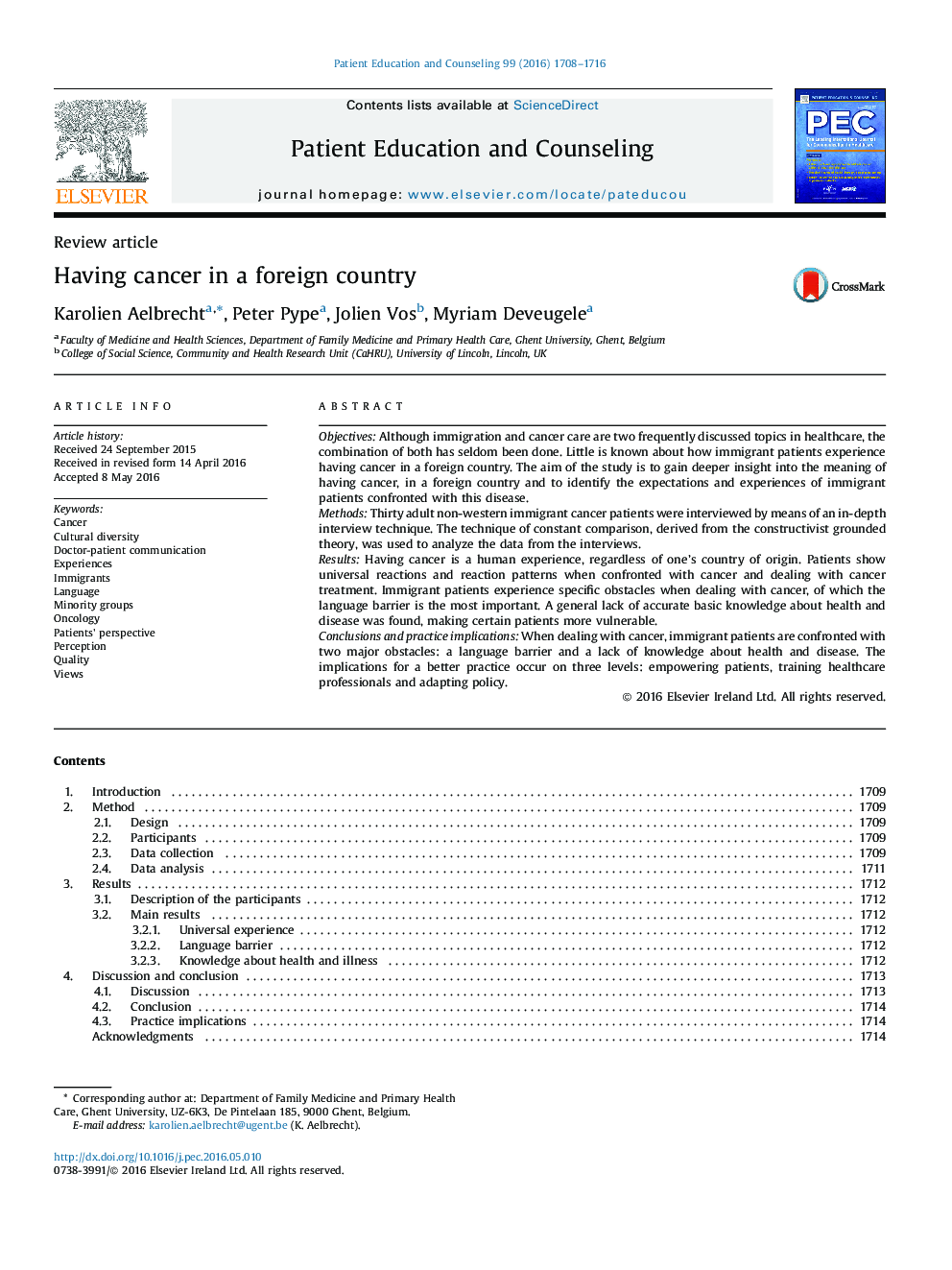| Article ID | Journal | Published Year | Pages | File Type |
|---|---|---|---|---|
| 3813486 | Patient Education and Counseling | 2016 | 9 Pages |
•Having cancer is a human experience, regardless of one’s country of origin.•Immigrant patients experience specific obstacles when dealing with cancer.•There is a language barrier and a knowledge barrier among immigrant patients.•Implications on three levels: empowering patients, training professionals and adapting policy.
ObjectivesAlthough immigration and cancer care are two frequently discussed topics in healthcare, the combination of both has seldom been done. Little is known about how immigrant patients experience having cancer in a foreign country. The aim of the study is to gain deeper insight into the meaning of having cancer, in a foreign country and to identify the expectations and experiences of immigrant patients confronted with this disease.MethodsThirty adult non-western immigrant cancer patients were interviewed by means of an in-depth interview technique. The technique of constant comparison, derived from the constructivist grounded theory, was used to analyze the data from the interviews.ResultsHaving cancer is a human experience, regardless of one’s country of origin. Patients show universal reactions and reaction patterns when confronted with cancer and dealing with cancer treatment. Immigrant patients experience specific obstacles when dealing with cancer, of which the language barrier is the most important. A general lack of accurate basic knowledge about health and disease was found, making certain patients more vulnerable.Conclusions and practice implicationsWhen dealing with cancer, immigrant patients are confronted with two major obstacles: a language barrier and a lack of knowledge about health and disease. The implications for a better practice occur on three levels: empowering patients, training healthcare professionals and adapting policy.
